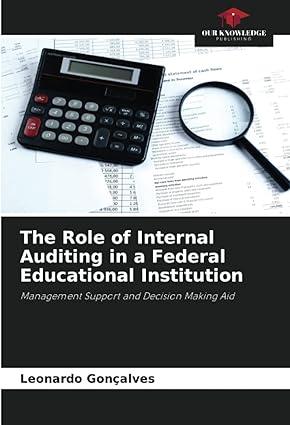Question
Jacob has saved up $150,000 which he has available to invest. He wants to earn some money on this savings to help pay for his
Jacob has saved up $150,000 which he has available to invest. He wants to earn some money on this savings to help pay for his daughters college expenses, and she will start in college in three years. Thus, he will invest this amount in one of the three alternatives described below, and will cash out his investments on December 31, of year three. He will invest his money as of January 1, year one. The first alternative is to invest in a one-year muni bond. The muni bond matures and pays interest each year on December 30, and on that date each year Jacob will invest the income, net of any tax he has to pay, in a bank CD, and use the principal to buy another one-year muni. The CD also has a one-year maturity, and he will reinvest the principal and any income from the CD, net of any tax he has to pay, together with the income from the muni, in another CD, etc. At the end of year three when the last muni and CD mature, he will keep the CD and muni amounts as of that time, net of any tax he has to pay, to fund her education. The second alternative is to buy a nice piece of vacant land outside of town. Jacob believes that the land is a good investment that will appreciate over the next three years. He will sell the land on December 31 of year three. The third alternative is to buy stock in XYZ Corp. This is a very stable stock that pays qualified dividends each year, on December 30, at the same rate, and, in addition to paying a dividend, also appreciates at a constant rate each year. Jacob will collect the dividends paid each year and reinvest the dividends, net of any tax he has to pay, in the same stock. He will sell the stock at the end of year three. (He will not reinvest the year threes dividend, but just add it, net of any tax he has to pay, to whatever amount he collects on sale of the stock) Jacob is, and will remain, in the 42% ordinary income and 20% LTCG tax brackets. The rate of return for the muni is 8%; the rate of return on a CD is 8%; the appreciation rate for the land is 10%; the dividend payout rate for XYZ stock is 5%; and XYZ stock also appreciates at a 5% rate. Assume that these rates remain constant for all years in question. Which investment should Jacob make (and only pick one) in order to have the maximum after-tax dollars for his daughters education based on the facts above? Be certain to show all work for all three alternatives.
Step by Step Solution
There are 3 Steps involved in it
Step: 1

Get Instant Access to Expert-Tailored Solutions
See step-by-step solutions with expert insights and AI powered tools for academic success
Step: 2

Step: 3

Ace Your Homework with AI
Get the answers you need in no time with our AI-driven, step-by-step assistance
Get Started


